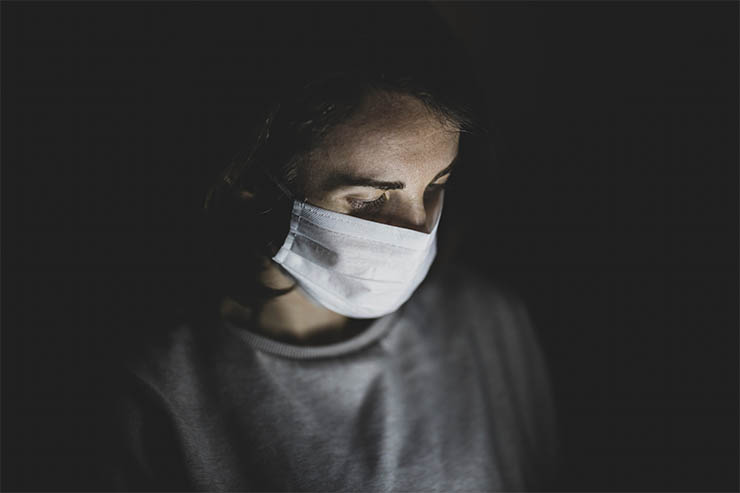Anxiety is a feeling or set of feelings and a perfectly natural reaction to certain situations where you feel apprehension or fear and can become a problem if the feelings won’t go away. With Coronavirus on the news constantly, everyone in lockdown and life completely different to what we’re used to, it’s not surprising we are having these feelings.
You might be off work at the moment, separated from your family and worrying about how you are going to pay your bills. You might be feeling the sensations of anxiety such as butterflies and light-headedness rather than consciously worrying about the situation. Often, our overthinking and negative thoughts will make us perceive something as more threatening than it really is making you feel powerless to do anything about it.
The Amygdala (the part of our brain responsible for fear and emotion) is on the lookout for danger all the time, knows what has worried you in the past and has a list of responses that can start flight or fight without your consent, preparing your body for an emergency that may never happen. It has a routine and always knows when you are supposed to worry or panic.
Here some ideas that you can use to soothe yourself, take back control and tame your anxiety monster.
A daily breathing exercise or making mindfulness practice part of your routine is a great way of controlling your anxiety. Not only will it help you during an anxiety attack but, with practice will help you to relax and stop an attack before it starts. As you can meditate just about anywhere, using an app such as Calm or Headspace can help you.
You can do this exercise either sitting up or lying flat on your bed. Remember that there is no right way to breathe, and no need to control your breath. Just relax and breathe however is natural to you.
Try to imagine the air is coming from far away and you are blowing it out to a distant place. Concentrate on your chest or abdomen rising and falling, you might also say to yourself ‘in’ and ‘out’ to match your breathing. Or perhaps think of the word ‘relax’ on each out breath. Your mind will probably wander at some point, and thoughts will arise. Each time it does, don’t worry about it. Acknowledge the thoughts you have, then gently bring your focus back to your breathing.
Regular exercise is another great way to soothe yourself, make you feel good and reduce the feelings of anxiety, stress and depression, and even at the moment we can make use of the time we’ve been given, get outside and take a walk. If you have a garden, get out in it and fill your lungs with fresh air. When you exercise, your body releases chemicals called endorphins. These endorphins interact with the receptors in your brain that reduce your perception of pain and heighten feelings of pleasure.
Practice gratitude. With life very stressful at the moment, it’s all too easy to focus on the negative events of the day, you can experience more positive emotions by taking time to notice and reflect upon the things you’re thankful for. These don’t have to be the big things in life such as being thankful for a promotion or pay rise, even just feeling grateful for the scrummy chocolate muffin you’ve just eaten can lift your mood and keep those anxious feelings at bay. Using a gratitude journal and regularly writing brief reflections on moments for which you’re thankful can significantly increase well-being and life satisfaction.
If you’re finding news updates about the virus are triggering anxiety switch off your notifications and limit yourself to reading information from official sources such as the World Health Organisation or the NHS.
Know that you’re not alone in this and it’s not ‘silly’ to feel anxious. Seeking professional help is still possible and if you’re finding your mental health is being affected at the moment I am offering online and telephone counselling at a reduced rate. Contact me to find out more.

